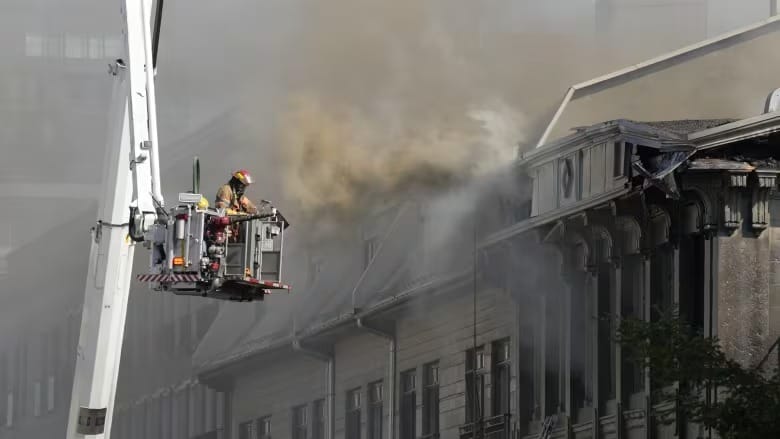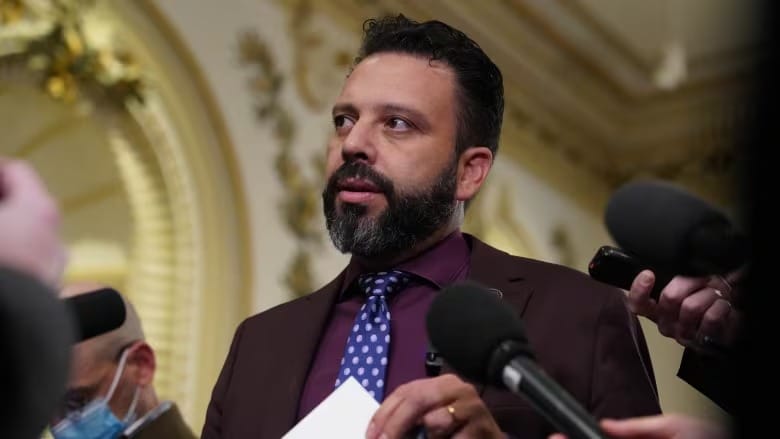Quebec will expand list of work-related cancers linked to firefighting
6 more cancers will be recognized by CNESST if amendments are adopted

Quebec is set to expand the list of cancers recognized as work-related for firefighters, following years of lobbying by firefighters’ unions. The province plans to add six cancers—leukemia, brain, testicular, esophageal, colorectal, and breast cancer—to the presumptive cancer list, eliminating the need for firefighters to prove their illness is job-related.
Previously, firefighters diagnosed with cancers not included on the list had to demonstrate that their illness was caused by their work. In an interview with CBC News, Labour Minister Jean Boulet acknowledged the difficulties firefighters have faced in receiving compensation.
“I’ve heard from many firefighters who endured long delays to get the compensation they deserve,” Boulet said. “It has become a priority for me, and I’m proud to remove this burden. I’m very happy, not only for the firefighters, but for their families.”
The CNESST, Quebec’s workplace health and safety board, estimates the changes will allow dozens of firefighters to receive compensation each year. Boulet emphasized that further progress is needed. “We will keep improving the situation. It’s still my intention to add new cancers,” he said.
Quebec Lags Behind Other Provinces in Recognized Cancers
Currently, Quebec’s CNESST recognizes nine work-related cancers for firefighters—the fewest in Canada. In comparison, provinces like British Columbia, Alberta, Manitoba, Ontario, and Nova Scotia recognize between 18 and 20 such cancers.
With the new additions, Quebec will increase its list to 15 by March 2025, addressing most cancers firefighters face, said Chris Ross, president of the Montreal Firefighters Association, which has pushed for these changes for over a decade.
Ross welcomed the announcement, saying, “Fires don’t burn differently in Quebec. We face the exact same cancer risks as any other firefighter, and there was no reason Quebec firefighters should be treated as second-class.”
Ross noted that eight Montreal firefighters have already died from CNESST-recognized cancers this year, and 44 have died in the past four years. “Most cancers diagnosed in Montreal firefighters are fatal,” Ross said. “The most important thing is that families—widows and children—are taken care of.”
A Personal Impact
Montreal firefighter Gabriel Thibert, diagnosed with Stage 4 glioblastoma in February, reflected on the significance of the change. His story, which prompted colleagues to start a fundraiser for the MUHC Foundation, was mentioned in Quebec’s National Assembly, and his cancer is now included on the CNESST’s list.
“I take a bit of pride in that,” Thibert said. “I’m very happy that it turned out to be fruitful. It’s about time Quebec caught up with other provinces.”
Thibert believes the expanded list will relieve some of the stress firefighters and their families face if they become ill. “It is satisfying to see the human side win,” he added.
Exposure and Prevention Efforts
Firefighters are frequently exposed to carcinogens, with burning materials like wood, plastic, asbestos, and chemical byproducts such as benzene and formaldehyde posing significant risks, explained Paul Demers, director of the Occupational Cancer Research Centre in Toronto. Fire trucks’ diesel exhaust fumes and certain firefighting foams also increase exposure.
“Inhaling smoke is the most obvious concern,” Demers said, “but many chemicals also pass through the skin and collect on firefighting equipment.”
In recent years, research has focused on improving equipment decontamination processes, though even these efforts can expose firefighters to chemicals. Municipal firefighters generally have high-quality respiratory equipment, but forest firefighters, who often sleep in camps, face prolonged chemical exposure.
Demers stressed that prevention is critical. “Some of these cancers are very deadly,” he warned. “You don’t want people getting them in the first place.”
Ross echoed the call for improved prevention efforts, including early cancer screenings, better equipment, and enhanced decontamination procedures. However, he acknowledged the challenges: “The sad reality is that prevention is very expensive, whether it’s the City of Montreal or a private employer.”





